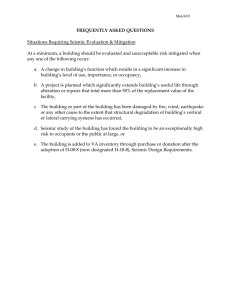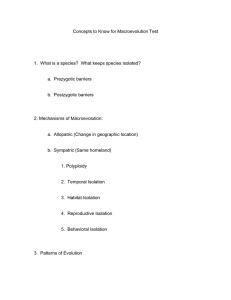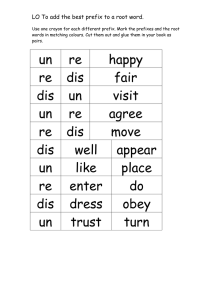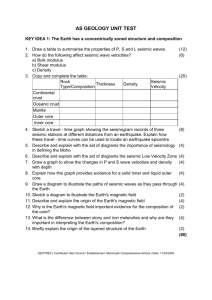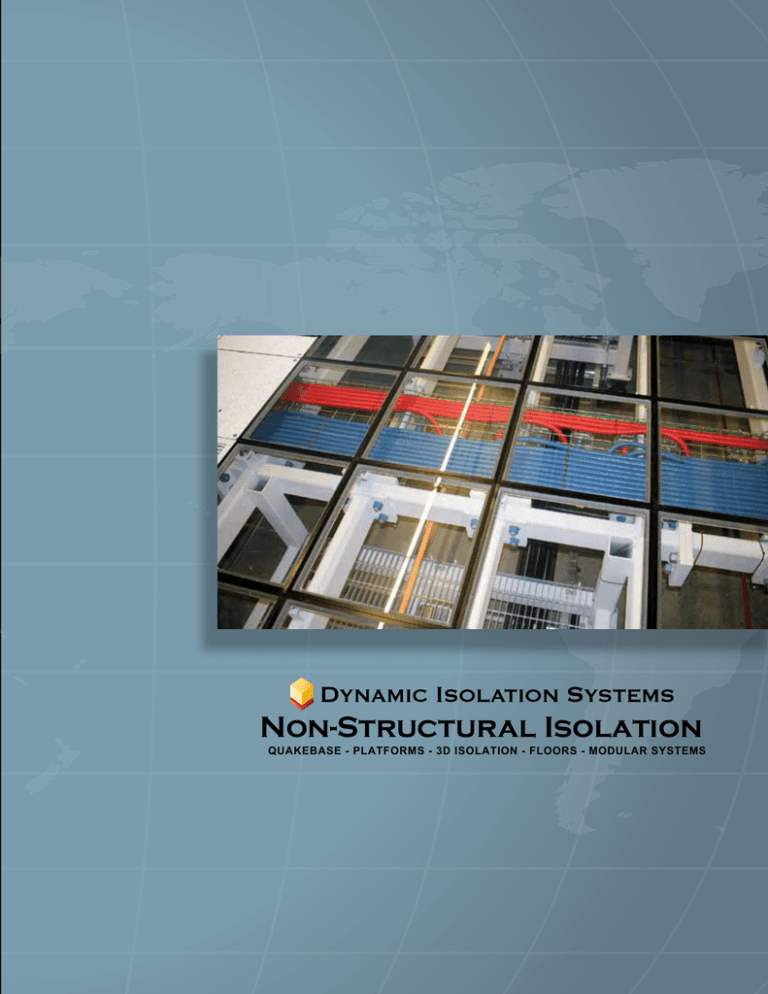
Non-Structural Isolation
QUAKEBASE - PLATFORMS - 3D ISOLATION - FLOORS - MODULAR SYSTEMS
Dynamic Isolation Systems
DIS is the World Leader in Seismic Isolation - no other company has completed more isolation projects in
more countries than Dynamic Isolation Systems.
Ideal candidates for non-structural
isolation include:
Computer Servers
Modular Data Centers
Prefabricated Structures
Artwork, Including Statues
Industrial Equipment
Emergency Command Centers
Data Center Floors
Medical, High-Tech &
Electrical Equipment
Critical equipment in the Salt Lake City Public Safety Building in Utah, USA is
protected by an extensive DIS Isolated Platform System.
An Industry Pioneer
Dynamic Isolation Systems is an industry pioneer
and continues to develop and add technologies to its
growing list of seismic protection solutions.
DIS designs and manufactures systems for structural
and non-structural isolation applications, including:
base isolation, viscous wall dampers, pot bearings,
sliders, isolated floor systems, modular isolation,
isolated platforms, vertical isolation and isolation
both horizontally and vertically.
Table of Contents
1 Introduction
2 QuakeBase
An engineered, low-profile solution to protect
servers.
4 Isolated Platforms
Protection for data centers, medical and industrial
equipment, artwork and computer servers.
6 3D Isolation
Seismic protection for applications which require
acceleration reduction both horizontally and vertically.
8 Floor Isolation
Seismic protection for essential equipment housed
within conventionally designed structures.
10 Modular Isolation Systems
Protect modular data centers from seismic events
and downtime.
12 Frequently Asked Questions
Vertical isolation system for hydro-electric facility.
Non-Structural Isolation
When isolating an entire structure is not an option,
DIS has a number of solutions to protect vital
equipment and artwork from the damage or downtime
caused by a seismic event.
1
1
www.dis-inc.com
www.dis-inc.com
DIS QuakeBase
An engineered, low-profile solution for protecting new and existing cabinets and equipment.
Ideal Candidates for QuakeBase
Mainframes
Server Racks
Optical Storage Units
What is QuakeBase?
QuakeBase is an isolated platform that uses double
concave sliders to protect from earthquake damage.
It’s designed to be an economical solution for low to
medium seismic zones.
How does QuakeBase Function?
QuakeBase works on the same principals as a simple
pendulum. Energy from an earthquake is dissipated
through friction at the sliding interface. Movement
of the system is controlled by the curvature of the
sliding surfaces.
Servers remain stationary during
every day use and maintenance.
QuakeBase is sized to accommodate standard server cabinets.
QuakeBase is modular and can be configured to suit
any server or equipment layout. Adjacent modules
bolt together to form a continuous system.
Advantages of QuakeBase
QuakeBase reduces earthquake energy transmitted
into servers by decoupling them from the ground
during a seismic event. In addition, QuakeBase
removes energy through internal friction.
Easy installation in both new
and existing data rooms.
QuakeBase’s low height allows for easy installation
in both new and existing data rooms. No drilling is
required for installation.
Concave sliding surfaces control seismic response.
Due to the friction interface in QuakeBase,
servers remain stationary during everyday use and
maintenance.
2
www.dis-inc.com
DIS QuakeBase
Performance
Typical equipment is capable of remaining operational at
accelerations up to 0.3g. The use of isolation limits the accelerations
transmitted from the floor into the equipment allowing it to remain
functional in larger seismic events.
QuakeBase limits accelerations imparted into equipment to safe operating levels.
Energy dissipation enables QuakeBase
to accommodate larger earthquakes.
The Allowable Earthquake Input for
Equipment Operation figure (right)
demonstrates the different levels
of earthquake that can be safely
accommodated without the use of
isolation (Non-Isolated), utilizing an
isolation system with little to no energy
dissipation (Un-Damped) and an
isolation system with energy dissipating
characteristics (QuakeBase).
QuakeBase safely accommodates larger earthquake inputs.
3
www.dis-inc.com
DIS Isolated Platform (IP)
Protection for data centers, medical and industrial equipment, artwork and computer servers.
Ideal Candidates for Isolated Platforms
Computer Servers
Medical Equipment
Manufacturing Equipment
Artwork, Including Statues
Why Use An Isolated Platform?
Computer servers and systems are key to business
operation in todays data-dependent world.
Isolated Platforms provide protection against server
downtime and equipment damage in the event of an
earthquake.
Drastically reduces earthquake hazard.
More Server Uptime
Protecting data centers and essential equipment
against system failure with backup power and
mirrored storage are common practice.
Configurations
DIS’ patented IP is comprised of Multi-Directional
Springs and high-load capacity rolling supports
housed within an
attractive steel
frame. Modules
are available in
Standard (4ft x
4ft) and Extended
(4ft x 6ft) sizes.
Individual
platforms can be
bolted together
on all four sides,
allowing for
40’ long Isolated Platform houses two
versatile layouts. banks of servers and IT equipment.
(i.e., for supporting single servers or a long row of
server racks.)
Platform heights range from 7 to 11 inches, depending
on the required load capacity.
However, protection against seismic forces is also
vital. Conventional earthquake protection utilizes
strengthening techniques which actually increase
seismic forces and accelerations. Conversely,
Isolated Platforms reduce equipment forces.
Systems and equipment remain undamaged,
operational and on-line. Seismic isolation has been
utilized to achieve Uptime Institue’s Tier 4 rating in
seismic zones.
Individual platforms can connect together,
allowing for versatile layouts.
Performance
During a seismic event the Isolated Platform decouples
the system from floor motions and absorbs seismic
energy. The floor moves beneath the IP, leaving what it
supports largely unaffected. Transmitted accelerations
are reduced by up to 5 times.
Solutions available to suit
any application.
Standard DIS Isolated Platforms are designed for
100psf to 500psf floor loading in moderate to high
seismic regions. Custom engineered solutions are
available to suit any application.
Overhead cable trays are easily used with DIS’ Isolated Platform.
4
www.dis-inc.com
DIS Isolated Platform (IP)
Patent No. US 8,061,692 B1
Individual Isolated Platforms bolt together to
accommodate various configurations.
These 20 foot tall bronze statues
in a California park are isolated on
DIS platforms capable of moving
+/-30” in an earthquake.
Finished Floor Requirements
Dimensions: Plan size 2ft larger than IP
to allow for movement
Flatness Finish: FF 50
Levelness Finish: FL 30
Designed to Support: 3,000 lb. point loads
5
www.dis-inc.com
DIS 3D Isolation
Seismic protection for applications that require acceleration reduction horizontally and vertically.
The Need for 3D Isolation?
Seismic isolation is typically engineered to protect
against horizontal accelerations during a seismic
event. In some applications, however, significant
vertical accelerations are present as well. DIS has
developed a solution to reduce these forces.
Most effective and complete solution
for addressing earthquake hazards.
Dynamic Isolation Systems developed a product
which provides isolation from damaging accelerations
in both horizontal (X, Y) and vertical (Z) directions.
The solution for isolating in both the horizontal
and vertical directions came about when a major
hydro-electric dam project needed to protect critical
equipment from extreme vertical accelerations.
3D shake table testing of DIS’ 3D isolation system at Dynamic
Certification Laboratories.
The equipment at the top of the hydro-electric dam
was subjected to spectral accelerations up to 17g.
These large accelerations would damage sensitive
equipment following a seismic event causing dam
controls to be inoperable.
Meet or exceed code requirements.
DIS developed 3D isolation platforms to reduce
forces and accelerations transmitted into the
equipment to be within IEEE 693 High Performance
code requirements. The successful development of
3D isolation led to the client incorporating vertical
isolation systems in several additional applications.
Components of the 3D isolation system.
DIS’ 3D isolation systems are the most effective and
complete solution for addressing earthquake hazards.
DIS specializes in custom design, development, and
manufacturing of solutions such as 3D isolation.
Vertical isolation system designed to protect hydro-electric dam
equipment.
6
www.dis-inc.com
DIS 3D Isolation
Patent No. US 8,061,692 B1
Configuration
DIS’ 3D isolation system uses a series of
guided bearings, vertical and horizontal
springs and dampers to achieve superior
performance during a seismic event.
3D isolation system dimensions and
capacities are determined on a project by
project basis by DIS’ team of seismic design
experts.
Performance
Several shake table test programs were
conducted at the University of Nevada, Reno
(UNR) and Dynamic Certification Laboratories
(DCL).
The critical components of the vertical Isolation system are visible in this image.
Spectral accelerations reduced
by factors of 10 to 20.
The system performed as designed. The spectral
accelerations were reduced by a factor of 18,
protecting essential equipment against the most
extreme seismic inputs.
Shake table testing of DIS’ vertical isolation system at the
University of Nevada, Reno.
Shake table testing shows 3D Isolation reduced spectral accelerations satisfying IEEE 693 High Performance requirements.
7
www.dis-inc.com
DIS Isolated Floor (IF)
Seismic protection for essential equipment housed within conventionally designed structures.
Ideal Candidates for Isolated Floors
Emergency Operation Centers
Configuration
DIS’ patented Isolated Floor is comprised of MultiDirectional Springs and high-load capacity rolling
supports in standard 4ft x 6ft modules which
accommodate standard 2ft x 2ft access floor tiles.
Data Centers
Large Floor Areas
Raised Floor Configurations
Why Use An Isolated Floor?
Risk management for computer servers and data
centers is an integral part of modern business.
Often the productivity of an entire company hinges
on the reliable and continuous operation of its
computer equipment.
More server up time.
Full scale isolated floor with seismic moat.
In addition to backup power and mirrored data
storage, seismic isolation is a critical piece of the
risk management puzzle.
Modules are connected with either 2ft, 4ft or 6ft
stringers and may be connected on all four sides,
allowing for custom configurations.
DIS Isolated Floor systems provide continuous,
single-level flooring with seamless integration of
conventional, raised-access floors.
Cable trays incorporated for easy access
and organization of utilities.
Floor heights available from 1 to 4 feet.
Conventional earthquake protection relies on
structural strengthening techniques, which actually
increase seismic forces and accelerations. DIS’
Isolated Floors reduce seismic forces. Systems and
equipment remain undamaged, operational and online both during and after a seismic event.
Under floor utilities may be organized through
incorporated cable trays and remain accessible via
standard access floor tiles or placed on the floor
below the stringers.
Systems and equipment remain undamaged,
operational and on-line.
Seismic isolation has been utilized to achieve Uptime
Institute’s Tier 4 rating in seismic zones.
Installation of a 16,000 square foot isolated floor at the UC
Berkeley, Computational Research and Theory Facility.
8
www.dis-inc.com
DIS Isolated Floor (IF)
Performance
During a seismic event the Isolated
Floor decouples the system from
the floor slab. The floor slab moves
beneath the Isolated floor system,
eliminating damage to equipment.
Standard DIS Isolated Floors are
designed for 100psf to 500psf floor
loading in moderate to high seismic
regions. Engineered solutions are
available to suit any application.
Please contact DIS for floor layout details.
Patent No. US 8,061,692 B1.
Finished Floor Requirements
Dimensions: Plan size 2ft larger than IF
to allow for movement
Flatness Finish: FF 50
Levelness Finish: FL 30
Designed to Support:
3,000 lb. point loads for 100psf areas to 15,000 lb. point loads for 500psf areas
3D shake table testing of DIS’ floor isolation system at
the University of California, Berkeley.
9
www.dis-inc.com
DIS Modular Isolation System (MIS)
Protect modular data centers from seismic events and downtime.
Why Use A Modular Isolation System?
Modular data centers are a key component for
business operations in today’s growing data industry.
DIS’ Modular Isolation System (MIS) provides
protection against server downtime and equipment
damage in the event of an earthquake.
Exceptional performance was seen
in a magnitude 7.6 earthquake.
Installing backup power and having mirrored storage
are common practices for protecting data centers and
essential equipment.
However, the missing piece of this risk management
puzzle has been the protection from seismic events.
This can be provided by DIS’ Modular Isolation
System.
Modular Data Center In Costa Rica. It performed well in a 2012
magnitude 7.6 earthquake.
Performance
DIS’ patented MIS is comprised of Multi-Directional
Springs (MDS) and high load capacity rolling
supports housed within an attractive steel frame. The
frame matches the footprint of a standard modular
data center and is only 12” (300mm) tall.
Seismic isolation has been utilized
to achieve Uptime Institute’s Tier 4
rating in seismic zones.
Conventional earthquake protection utilizes
strengthening techniques, which actually result in
increased seismic forces. The MIS, however, reduces
seismic forces. Systems and equipment remain
undamaged, operational and on-line.
Protection against server downtime
and equipment damage.
Transmitted accelerations are reduced by up to 5 times.
During a seismic event the ground moves beneath
the MIS, leaving the data center and its equipment
unaffected by the earthquake. The MIS decouples
the data center from the ground and absorbs seismic
energy.
A modular isolation system ready to accept modular
data center.
Standard MIS’ are designed for 25,000 to 65,000
pound modular data centers in moderate to high
seismic regions. Custom solutions are available for
any application.
10
www.dis-inc.com
DIS Modular Isolation System (MIS)
Contact DIS for custom sizes and designs.
Patent No. US 8,061,692 B1
MIS-20S Configuration
MIS-40S and MIS-53S Configuration
MIS-40H and MIS-53H Configuration
Dynamic control modules support vertical load,
control seismic movement, and house DIS’ patented
Multi-Directional Spring units.
Dynamic control modules support vertical load and
allow seismic movement.
Concrete Pad requirements
Dimensions: Container size plus 2ft perimeter
Flatness Finish: FF 50
Levelness Finish: FL 30
Designed to support: 10,000 lb. point loads
11
www.dis-inc.com
Frequently Asked Questions
What benefit can be expected from seismic
isolation?
Typical force and acceleration reductions are on
the order of 3 to 5 times and can be as much as 20
times.
What are the maintenance requirements for DIS
isolation systems?
DIS isolation systems are maintenance free devices.
The area surrounding the devices should be checked
periodically to ensure the system can freely translate
during a seismic event.
Has DIS ever had a failure in the field?
DIS has completed over 450 isolation projects on
some of the most high profile projects in the world,
dozens of which have been subjected to seismic
events. All projects have performed as expected and
none have required replacement after an earthquake.
Are there any limits to the use of DIS isolation
systems?
DIS team of international experts in the field of
seismic isolation verify that every project receives the
solution that best fits its specific needs.
Are specialty contractors required for
installation of DIS devices?
DIS isolation devices are installed by general
contractors, facilities or maintenance crews. Most
connections are simply bolted together and anchored
to the floor. Detailed installation manuals are
provided with all systems and DIS offers on-site
installation support.
What testing has been performed to qualify the
performance of the systems?
DIS’ various isolation systems have been extensively
shake table tested at university laboratories and
independent certification laboratories under full load
and earthquake conditions over the past decade.
Do the systems require replacement after a
seismic event?
DIS isolation systems are capable of protecting
against multiple large scale events and do not
require replacement after an earthquake.
Do DIS isolation systems incorporate any means
of organizing cables and utilities?
Overhead cable trays for utilities can be incorporated
into Isolated Platform systems and under floor cable
trays for utilities can be incorporated into Isolated
Floor systems.
Are custom designs available for unique
applications?
DIS specializes in custom design applications and
can offer a full range of design, detailing, and
manufacturing services, including stamping by a
licensed engineer if required.
12
12
www.dis-inc.com
www.dis-inc.com
The World Leader in Seismic Protection
885 Denmark Drive, Suite 101
McCarran, Nevada 89434 USA
T: 775.359.3333 F: 775.359.3985
www.dis-inc.com
Copyright © 2016 Dynamic Isolation Systems, Inc.
All rights reserved.
www.dis-inc.com

